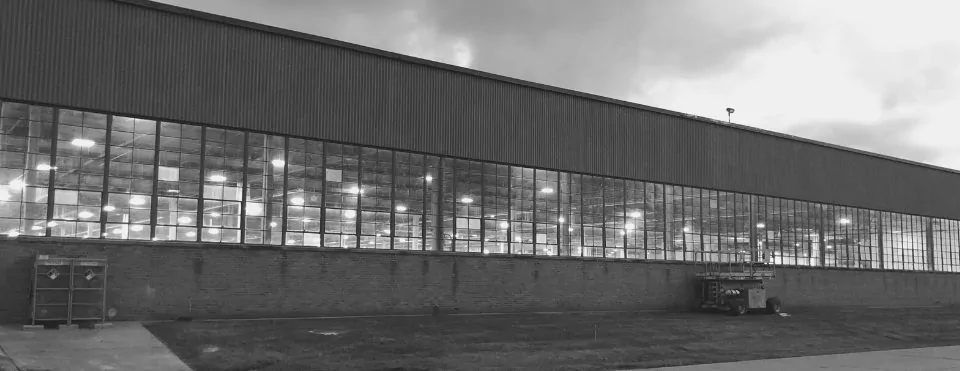Energy Efficiency Consulting Firms – What Do They Do?
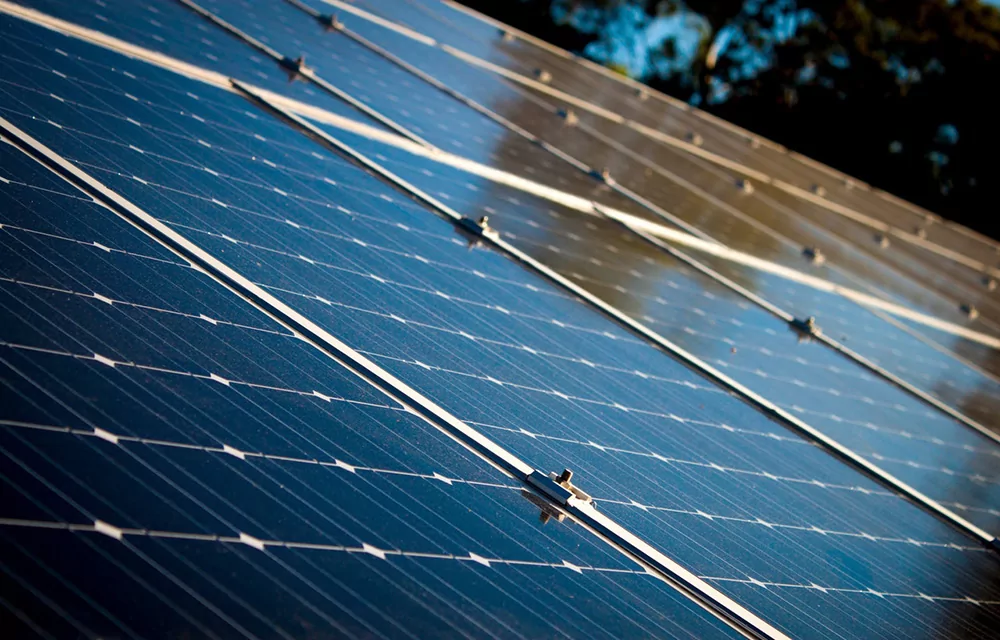
Jun 20 2019
Energy efficiency is a crucial aspect of running a successful business and oftentimes business owners are left with so little information about it. This is where energy consulting firms, like Verde, come in, advertising that they can help businesses run an environmentally friendly and energy efficient operation.
But what is it that these firms do exactly? As an energy consulting firm with years of experience in identifying opportunities for companies to reduce energy consumption and save money, we’re here to provide you with the answers.
What is Energy Efficiency Consulting Exactly?
Despite the scope of operations in one company, businesses still use a certain amount of electrical energy and generate some waste. Energy consulting encompasses all actions aimed toward identifying opportunities to reduce costs associated with energy consumption and waste generation.
However, it doesn’t end with identifying only. Energy consulting also includes finding and implementing solutions to minimize energy consumption and reduce carbon footprint. The ultimate goal for an energy consultant is to reduce operational costs for a company and help it become more environmentally friendly.
Energy Efficiency Consulting Firms Services
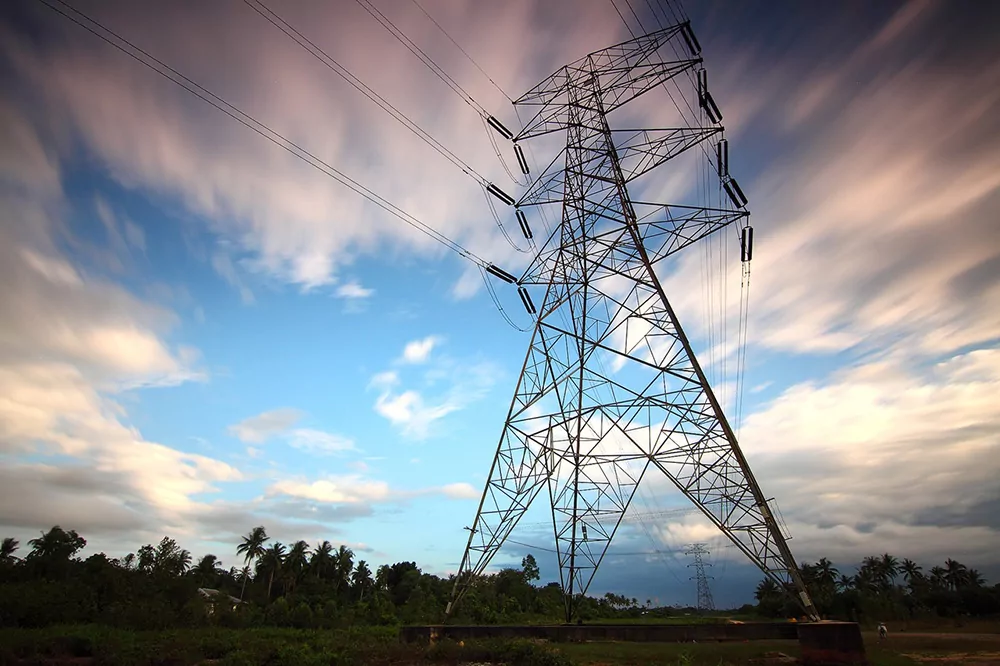
Energy efficiency and environmentally friendly business processes have become two very popular topics across all verticals. This is probably the main reason why people are looking into energy consulting firms more.
Simply put, energy consulting firms analyze energy consumption and carbon footprint for SMBs and enterprises, identify opportunities to reduce energy consumption, and implement them on the spot.
The first thing an energy consulting firm will do once you contact them is to perform an energy efficiency assessment. This is an audit of sorts, that allows energy consulting firms to gauge your energy consumption practices, past electrical bills, and waste generation.
If we break down the services of an energy consulting firm, we will be able to see the different energy saving topics these firms address and the things they do to cut down expenses and improve energy efficiency.
Interior and Exterior Lighting
Interior and exterior lighting solutions often cause huge energy consumption costs which significantly increase electrical bills. Energy consulting firms specialize in replacing and retrofitting obsolete lighting solutions with new LED lights.
LED lighting uses up to 80% energy than traditional lighting, and also has less mercury and needs to be changed less often. So along with energy efficiency consultants saving you actual energy, they are also going to save you on maintenance costs and recycling and waste services too.
To even go deeper on these savings, LED lighting can have daylight harvesting and photocell controls integrated, making them last even longer since a fixture dimmed or off will last longer than one on all the time.
HVAC System Recommendations from Consulting
Energy consultants will also inspect your current HVAC systems to assess their efficiency, but also to identify if they have up-to-date technologies and parts. If necessary, you will get a recommendation to upgrade your HVAC unit to a more energy efficient one. We call this a high efficiency, or HE HVAC upgrade – taking the same system design and improving it to a better version. It isn’t sexy, but it saves a lot of money and often has rebates and incentives associated with it.
You can decide if a basic upgrade is within your budget. Typically, an energy efficiency consulting firm will encourage you to seek CEE tier 2 equipment, which is the top 25% of efficient equipment on the market. HVAC equipment can do this with Variable Speed motors and drivers, as well as with multiple stage heating and cooling that can operate far more efficiently. Modern equipment can also achieve more efficient cooling by expanding to larger footprint evaporators.
Demand Control Ventilation for Your Space
An advanced energy efficiency consultant will encourage you to look into advanced ventilation strategies like demand control ventilation. Demand-controlled ventilation (DCV) is a smart ventilation system that automatically adjusts the amount of fresh air brought into a building based on real-time conditions, such as:
- Occupancy: When there are more people in a space, the DCV system will increase the ventilation rate to remove CO2 and other pollutants. Conversely, when the space is unoccupied, the system will bring in less outside air, saving you from heating and cooling outside air.
- Indoor air quality: DCV systems can be equipped with sensors that monitor indoor air quality for things like CO2, volatile organic compounds (VOCs), and humidity. If the levels of these pollutants start to rise, the system will increase ventilation to improve air quality.
- Energy efficiency: By only providing ventilation when it is needed, DCV systems can significantly reduce energy consumption associated with heating, cooling, and operating the ventilation system itself.
- Improved indoor air quality: DCV systems help to ensure that occupants have access to fresh, clean air, which can improve their health and productivity.
- Reduced energy consumption: DCV systems can save up to 50% of the energy used by traditional ventilation systems.
- Lower operating costs: By reducing energy consumption, DCV systems can also help to lower operating costs for building owners.
- Increased occupant comfort: DCV systems can help to maintain comfortable indoor temperatures and humidity levels.
Most equipment can incorporate a demand control ventilation in a retrofit, or even just adding a CO2 sensor to an existing system. These savings can be deep, and often the costs to implement are fairly low.
Heat Pump and Energy Recovery Ventilators
If you are feeling ambitious, or have very strong ESG goals, your energy efficiency consultant may recommend heat pumps. In fact, heat pumps are the only way to decarbonize heating needs for buildings.
When you combine a heat pump, or Variable Refrigerant Flow system (VRF) with an energy recovery ventilator, a building can be up 600% more efficient than standard systems. These are major systems that require engineering and a lot of capital and foresight – but they save deep amounts of energy and long term costs.
The first thing an energy efficiency consultant should do is gauge how deep of savings you are committed to – and what kind of return on investment you will require. This kind of recommended VHE HVAC system is not for the faint of heart – but they can lead to deep savings and a more healthy and competitive work environment.
Doors, Roofing and Windows Insulation
The insulation on your doors and windows deteriorates over time, causing the outside air to come inside and overwork your cooling or heating systems. If this is the case in your building, an energy consultant will recommend weather-stripping to help you restore insulation and minimize energy waste.
Roofing insulation can make a big difference in heat loss during the winter, and white cool roofs can make a big difference in lowering a temperature of a building in the summer. These two projects can make a big impact on building comfort as well, creating an added benefit.
New windows not only make a huge difference in energy savings, they need to typically get done every few decades and should be budgeted for.
Rebates from utilities can help offset some of the cost of each of these, especially if done in conjunction with a blower door test to look for air leaks and low insulation points.
Solar PV and Wind Energy
Almost every business and homeowner is curious about solar PV these days. An energy efficiency consultant can help navigate this complicated space, to see what options exist for your building roof and property.
In Illinois and many states, Renewable Energy Credits can help make the choice of solar on your property make more sense. The state will give you credits to help meet goals of solar PV production, sometimes covering up to 40% of the cost of a project. In addition, there are federal tax credits that can help make this project make sense if you are a tax paying organization. And if you do not pay taxes, state RECS can often be higher to help you. And finally, there are the savings you get from creating your own power, which can often lead to up to 25 years of free energy once paid for.
You can also participate in solar by buying into a community solar farm in Illinois, as well as credits for wind and solar. Both of these can be viable options to reduce traditional electricity purchase, and sometimes lower costs. In 2024, the cost to produce wind and solar energy and produce those new production sources are actually cheaper than traditional, and come with state subsidies to boot.
Finally, there is something called a power purchasing agreement. This can help someone else pay for your system, and then sell you the power generated over the next 20 years. The benefit of this is that there is no capital cost for the work up front, and often maintenance of panels are included.
Energy Efficiency Consultants Look At Your Electricity Usage
The energy efficiency consultant will typically request the past 2 years of your electric utility bills, so you they can analyze your usage and costs. While they can often grab past usage off just a single bill with your account on it, old bills can help them determine how your costs have changed over time, and what to expect in terms of costs increases in the future.
There are three main things to consider with electricity usage and costs. First, is your kWh each month. This is your usage of energy, which is measured in kilowatt hours.
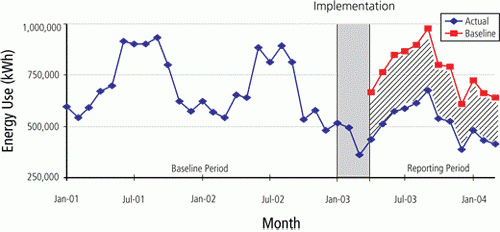
Next is your peak usage, which is kW. It may seem like these are the same, but they are quite different. Peak kW is the highest your building has energy coming into it at any one time. This is very important to the utility, since it helps them manage the entire grid and the local grid around you.
Finally, the cost you pay for each of those is important. We always recommend clients stay with their local utility instead of third party providers – but the important thing is that you know how much you pay for both of the above for savings calculations.
Energy Efficiency Consultants Look at Your Water Usage
Water usage can often be overlooked – but it can tell a story. And since the City of Chicago has really pushed hard to measure and bill water based on usage – there can be more reasons to save on water usage.
Industrial usage can use a lot of water, but so can landscaping and other reasons you may not think of. One of our past customers was paying a significant water bill in the summer, because they used city water to cool their chillers for air conditioning. While that is no longer allowed by code – it was also a terrible idea because of the huge cost of water in our area.
Energy Efficiency Consultants Look at Your Natural Gas Usage
Other than process usage, natural gas is typically used for heating your space, creating hot water, and food preparation.
All of those systems can now be done more efficiently with heat pumps and electric cooking equipment. While the cost to convert can be high, there is no way to decarbonize a building without removing natural gas. Since Evanston and Oak Park have already passed legislation, and Chicago is considering essentially banning natural gas on new building construction – this technology will continue to evolve and come down in cost.
Getting the past 2 years of natural gas usage is an important step, so you can determine heating natural gas usage from the others, as well as determine the benefit of fuel switching.
What Does an Energy Consultant Do If I Have Multiple Buildings or Locations?
If you have multiple locations, they may encourage you to use a software platform that can aggregate and compare these locations. But you can easily use an excel spreadsheet to do this, and that may be how they accomplish managing different buildings, either with a simple or complex spreadsheet.
When we have worked with PGIM and Lasalle on projects like these, they have whole teams dedicated to this task. But smaller firms likely don’t, so a simple spreadsheet can accomplish a lot. Feel free to ask us if you’d like a template to use.
Do You Need an Energy Consultant?
The best way to assess whether you need an energy consultant is to take a look at your energy bills. If you’re under the impression that they’re too high, you should request an energy assessment today.
On the other hand, if you want to optimize your energy consumption and run an environmentally friendly operation, you can also benefit from cooperating with an energy consulting firm such as Verde. Other benefits can include reduced maintenance costs, reduce recycling and trash fees, and more.
Featured Posts
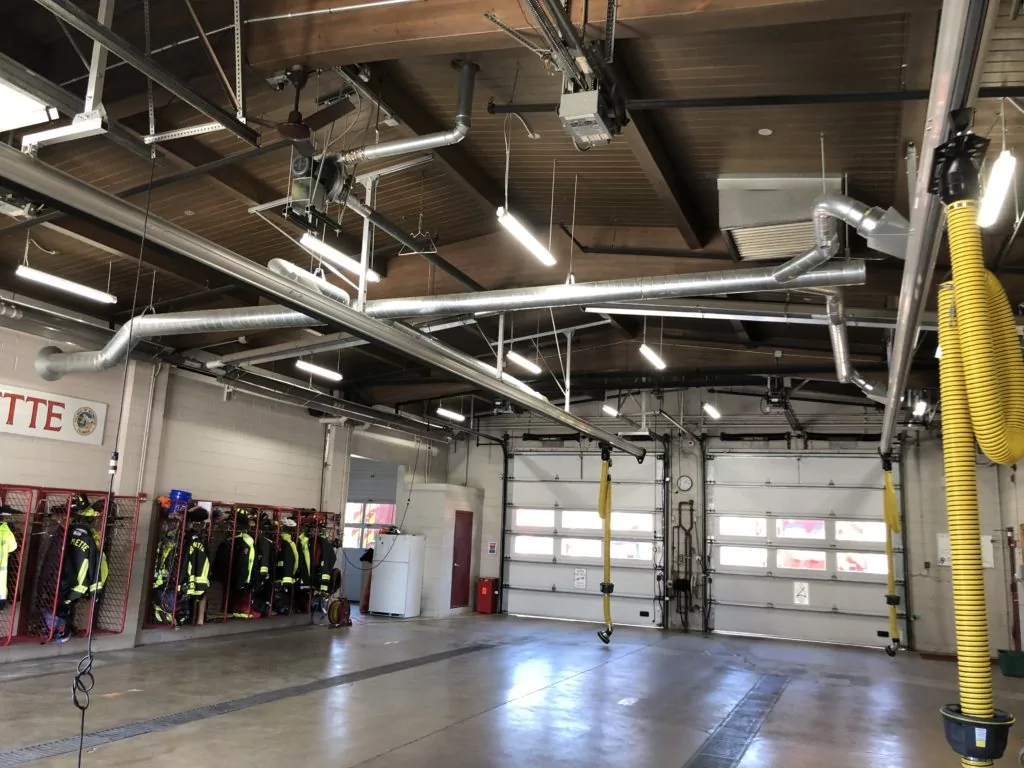
Mar 15 2021
Energy Savings Formula
In 2002, I became a firefighter in the north suburbs of Chicago. I was young and idealistic - loving almost every part of the job. However, I had another secret passion - sustainability. In addition…
Continue Reading >

May 02 2019
Verde Energy Efficiency Experts 10 Most Sustainable Companies in Chicago
In our energy efficiency consulting firm, we constantly look for inspiration from local companies that lead and innovate in clean energy and sustainability. Not all companies have billion dollar budgets, but that doesn’t mean that…
Continue Reading >
Related Articles
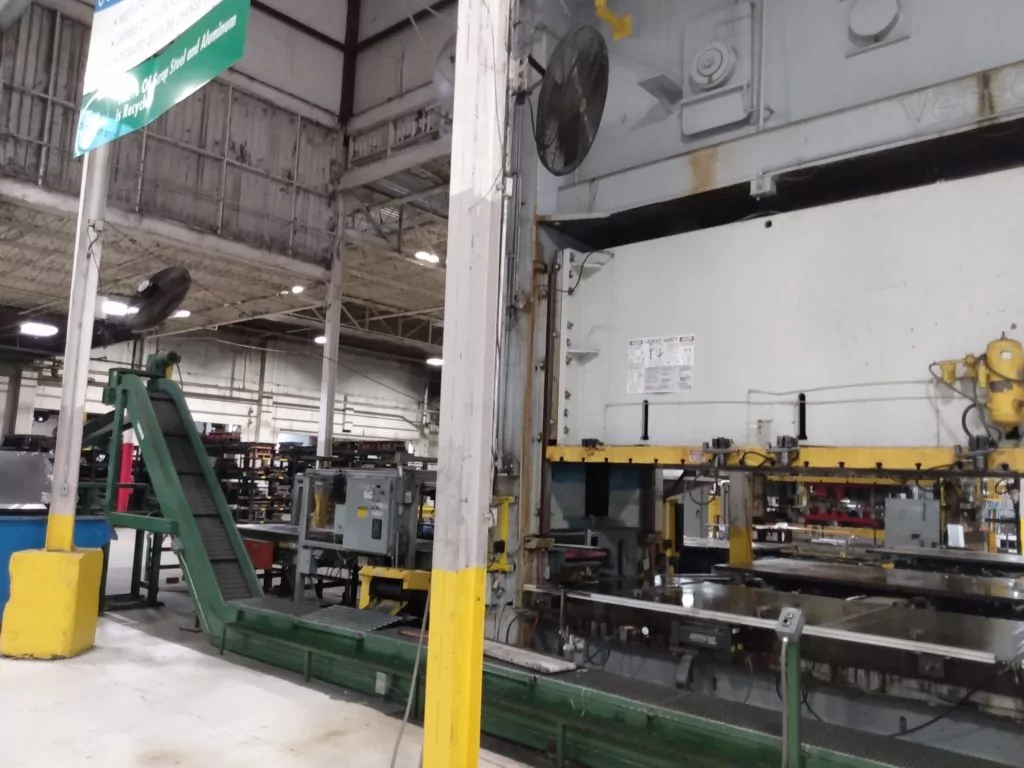
Nov 23 2023
Embracing Energy Efficiency and Sustainability in Manufacturing
Why Your Manufacturing Facility Should Already Be LED In the dynamic landscape of modern manufacturing, where efficiency, sustainability, and cost-effectiveness are paramount, the adoption of LED lighting stands as a transformative step towards a brighter…
Continue Reading >
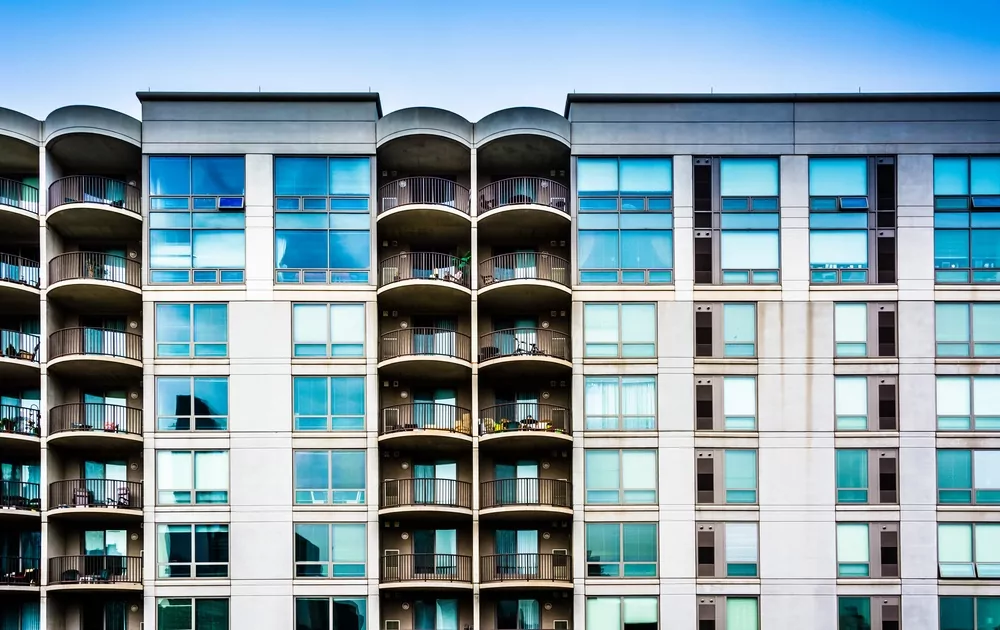
Nov 23 2023
The Impact of Poor Building Energy Controls on Your Bottom Line
The Impact of Poor Building Controls on Your Bottom Line In today's business world, where every dollar counts, it is more important than ever to be mindful of expenses. One often-overlooked area where businesses can…

